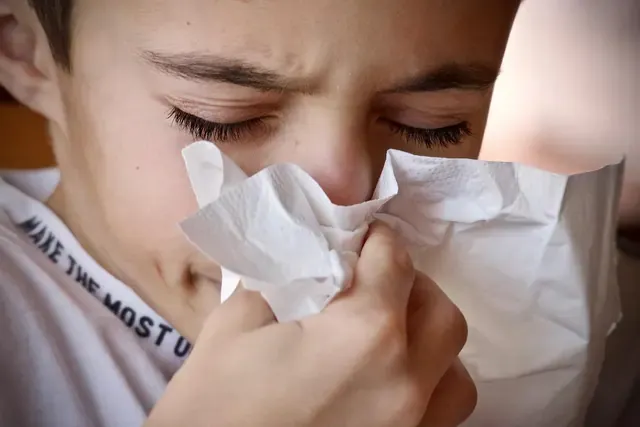Every allergic person is familiar with anxious thoughts: "Where is the danger? What will happen next time? How bad will the reaction be?"
Dr. Ruchi Gulta, director of the Food Allergy and Asthma Center, explains why children and adults develop allergies, intolerances and sensitivities to different foods. And what to do about it.
Allergies, intolerances and sensitivities
Under the cover of the book is an overview of the mysteries of allergies and a medical guide for allergy sufferers.
The mischief of the immune system
How do food allergies arise? It all starts with the immune system. It can easily distinguish between its own cells, threats and harmless substances. But sometimes it labels it as "bad" when it shouldn't be. It then tries to expel the intruder and wreaks havoc.
As a result, the harmless proteins in cashews or shrimp become really dangerous for us.
Allergies have many symptoms, from rashes, vomiting and breathing difficulties to diarrhea, migraine and anaphylaxis. The book will help you see the big picture, identify your place in it, and understand what steps you can take.
Here's what you'll find under the cover:
- How to determine your food IQ.
- What to do if allergy catches you by surprise.
- How to communicate with doctors to get an accurate diagnosis and help manage the disease.
- How to read food content and choose the right foods for you.
- What role do the microbiome and gut health play in an allergy-free life?
- Tips for parents and an example of a food diary.
"Allergy vaccination"
Until recently, protection from allergies was thought to consist of excluding certain foods from a child's diet for at least a year. But Professor Gideon Luck of London pointed out an interesting finding: allergies were 10 times more common in Jewish children living in the UK than in those living in Israel. The genetic basis was the same, so what was the difference?
It turned out that in the UK children rarely ate peanut products in the first year of life, while in Israel children were given bamba, a corn and peanut snack, during teething. Dr. Lack realized that bamba could be a kind of inoculation against allergies (in this case to peanuts).
We can reduce the risk of developing food allergies by giving the child possible allergens at an early age, between 4 and 6 months.
Dogs are good
The gut can be considered the largest organ of the immune system. And its bacteria can control inflammation. Take care of it for fewer health problems. Eat a varied diet, for example. Or get a dog.
After studying a group of 275,000 schoolchildren, researchers found that owning a dog reduced asthma by 13 percent.
The idea that pets can improve the microbiome becomes even more important in light of the "old friend hypothesis" of hygiene. Humans and animals have long evolved together, as have our microbes. Losing contact with these old friends can alter the delicate balance.
Sensitivity and migraine
Even if you do not have allergies, you may have problems with foods. You may lack the enzyme needed to digest certain substances or handle certain foods differently. This is called sensitivity.
Take vasoactive amines - tyramine, serotonin, histamine. They are found in cheese, processed meats, bananas, pineapples, avocados, citrus fruits, fermented fish and sauerkraut. They can also act directly on small blood vessels, increasing their lumen and activity. They are therefore likely to be responsible for migraines, hot flashes and nasal congestion in people who are sensitive to them.
If you don't feel well after a meal, keep a food diary. Record the menu, reactions and when they occur. Look closely: are there any patterns?
What else?
It used to be believed that allergies started in childhood. But research has disproved this. It turns out that nearly half of people with allergies developed them in adulthood.
Allergies are not related to age, gender or place of residence. It is a problem that can affect anyone. But it is up to us to be prepared to deal with it.



